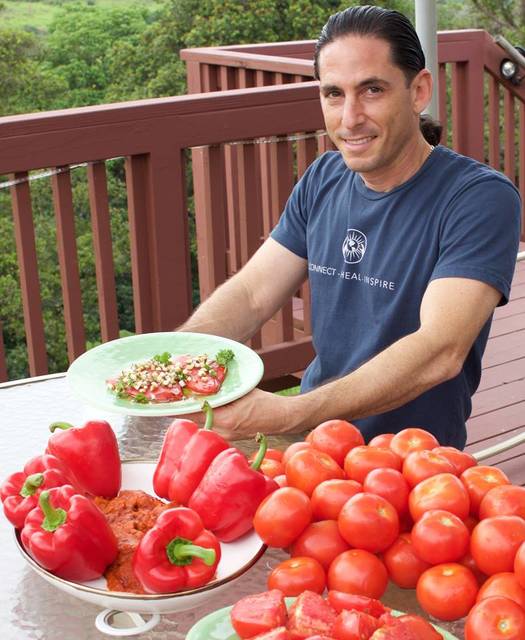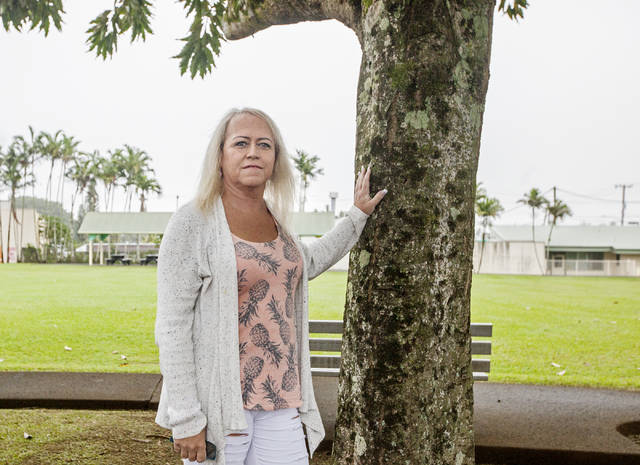Transgender woman hoping to claim $95K in discrimination case



Its one thing for the state Civil Rights Commission to rule in your favor in a transgender housing discrimination claim and award you $95,000.
It’s one thing for the state Civil Rights Commission to rule in your favor in a transgender housing discrimination claim and award you $95,000.
Unfortunately, it’s another to actually collect on the claim, as Kiona Boyd has learned. Meanwhile, she’s living in her car and couch surfing whenever possible, unable to find another place to live and unable to work because of an unrelated shoulder injury.
ADVERTISING
Boyd was awarded the judgment on Nov. 30 against Jeff Primack, a Florida-based qigong guru, who has written books, produced videos and toured nationwide with his Qi Revolution seminars.
The commission ruled Primack violated Boyd’s civil rights by firing her and evicting her in 2015 from a 98-acre property in Hakalau that Primack owns and where Boyd was caretaker. According to the commission, the eviction occurred because Boyd, formerly Kawika Boyd, came out as a woman.
Primack — who still owns the property worth $586,100 according to the county’s Real Property Tax website — also sent Boyd harassing, demeaning and threatening text messages, which Boyd kept and the commission documented.
The commission filed suit earlier this month in Hilo Circuit Court, asking a judge to enforce its ruling that Primack pay Boyd the $95,000.
Primack also was ordered in the commission’s ruling to cease and desist from unlawful discriminatory practices in housing and to attend a fair housing training session in April.
Boyd, who has a background in electromechanical engineering and military weapons design, said she was hired as Kawika Boyd by Primack, after Boyd, working for a yurt company, helped clear the overgrown property and build a yurt, the first building on the land.
“I just knew that I loved that land,” Boyd said. “And after the yurt was built, he asked if I could come and be the caretaker. And it was an immediate, ‘Yes, I’d love to live up here.’”
“Jeff and I developed a really good friendship,” she added. “Him and I were such good friends because I had no idea who he was. I didn’t idolize him. I just treated him as a normal human being.”
Boyd said that as Kawika, he and Primack would “go for walks every morning, get coffee and just talk about life, fun, business and the property.”
In addition, Boyd developed a friendship with Anisa Taylor, a cook for Primack who became part of his seminars, teaching food healing.
Boyd was informed on Jan. 6, 2014, that Taylor’s slain body was found in Georgia the previous day.
“She had been strangled by her husband in her car as she was ready to leave to go to a friend’s in Florida,” Boyd said. “… That affected the entire organization. It devastated me.”
According to Boyd, as the one-year anniversary of Taylor’s murder approached, the decision was made to come out as a woman.
“I was going to honor her life by living mine to the fullest,” Boyd said.
Boyd said she had lived her life as outwardly male for her first five decades, but has known since early childhood that her gender identity was different. Boyd learned “there are others like me” via an episode of Phil Donahue’s talk show in the 1970s.
“I wanted to watch that episode of Donahue so badly,” she said, and added viewing it in the Colorado home of her childhood was “out of the question,” so she arranged to watch elsewhere.
According to Boyd, when Kawika became Kiona, people were supportive — “at first.”
“It was scary to share that with the world, to be your true self. But I was in the middle of the forest, surrounded by a lot of good people,” she said.
“But after a couple of months I noticed that people who were, like, ‘namaste, we are all one, peace, love, harmony with nature’ turned out to be fake.”
“I started realizing who the real friends were,” Boyd added. “And a lot of people couldn’t handle because they knew me as Kawika for so long. It was just too much for them to see me now as Kiona. And it was fine. I’m OK with that. Because my real, true friends are still with me today.”
Boyd said Primack found out through social media and, at first, appeared to be supportive. However, Boyd said Primack’s attitude changed during a retreat on the property in July 2015. And Boyd learned she would soon to be fired and evicted after a neighbor confided that Primack asked him to take over as the property’s caretaker.
“That’s when I started panicking and asking Jeff, ‘Are you trying to fire me because I’m now Kiona?’ And he’d never respond until after the retreat. And after the retreat ended, that’s when all the violence and the threats and the insinuating that I was not doing my job and all these excuses as to why he was going to let me go began. But he didn’t actually say you’re fired or evicted until later on that month.”
The commission’s suit said Primack started sending Boyd demeaning and threatening text messages in July 2015, including a barrage of about 100 messages on July 16 such as “I don’t like girls who wear makeup … Let alone men,” “My fist in your face is direct,” and “I will strangle you … you (expletive) ass bitch.”
“The threat to strangle me, knowing that we’d just lost Anisa to strangling,” Boyd said, her voice trailing off. “I went from who I always wanted to be and my dreams were coming true — beautiful property and I get to be me — to six months as a female and I’m homeless.
“I got fired by the last person on the face of the Earth that I thought would ever have that mentality to actually do what he did.”
Rebecca Stotzer, a professor at the University of Hawaii School of Social Work and an expert on bias crimes and LGBT discrimination, testified at Boyd’s commission hearing that the stigma against transgender people “comes in many forms … which includes micro-aggression, threats and acts of discrimination.” Stotzer also testified the 2015 U.S. Transgender Survey reported “a high frequency of violence against transgender people because of their gender identity.”
“She went pretty much line by line how damaging his comments are to a trans person,” Boyd said.
Boyd says she’s redefining herself as a singer and has placed in the “Hawaiian Idol” competition at KBXtreme in Kona the past three years. She said she finds joy and a respite from her situation by singing for an appreciative audience, but it doesn’t pay the bills.
“Just because I was awarded $95,000 doesn’t mean anything has changed, other than people know now,” Boyd said.
“It damaged my credit when he fired and evicted me, and I haven’t been able to find housing for almost four years. I’m staying with some friends now. They’ve been really supportive of the whole thing.”
Primack was given time by the commission to appeal its ruling but didn’t do so.
“My attorneys hit me with the bombshell he could fight paying me for 10, 20, 30 years before I ever see a dime,” Boyd said.
“Everybody feels that justice is served, but until he pays for what he’s done, he’s still business as usual. He’s still booked at 11 places this year to have his seminars around the United States.”
Email John Burnett at jburnett@hawaiitribune-herald.com.


